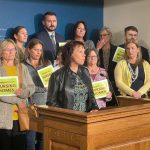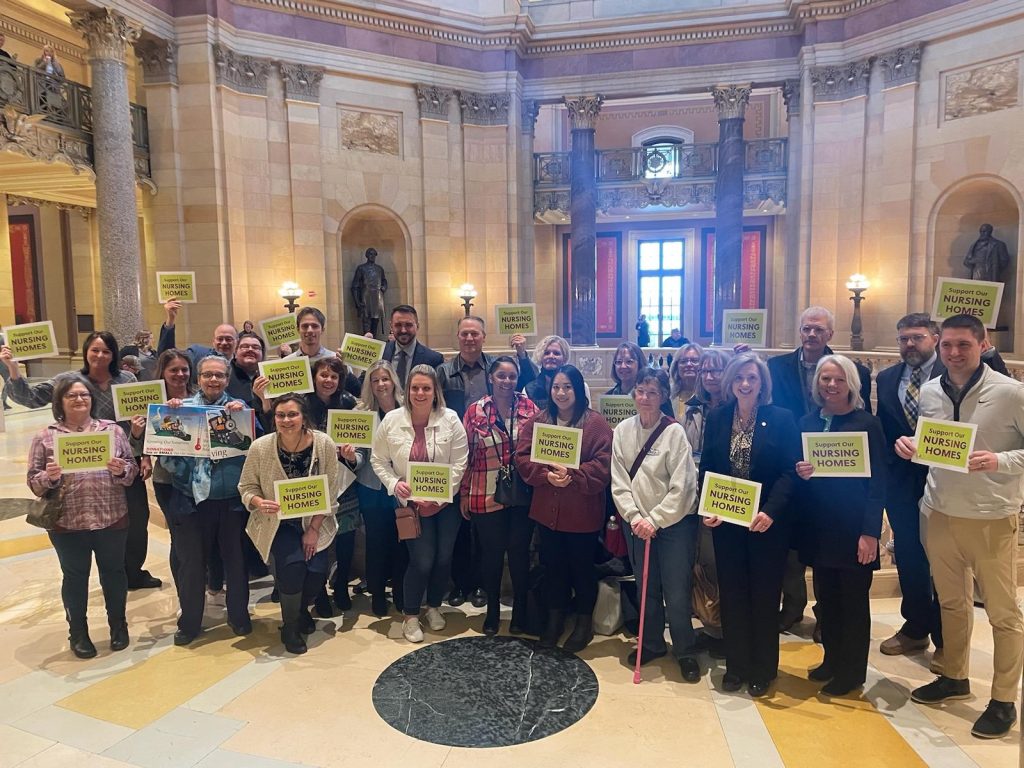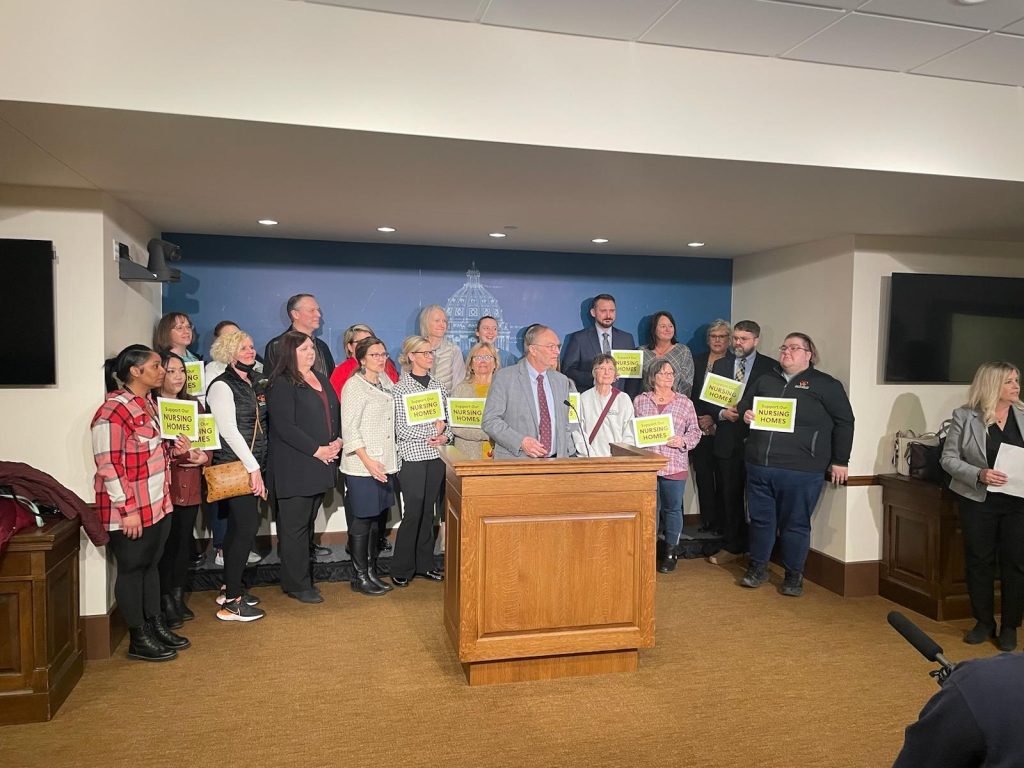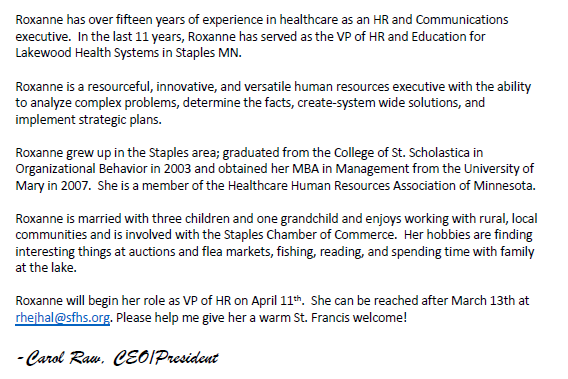by Erin Huppert, LAMN
The Minnesota House Human Services Committee released its omnibus finance bill this week. The budget bill includes some priority legislation like Elderly Waiver funding and a PACE rate study but stops short of investing in skilled nursing care for older adults.
What’s in the bill for aging services
In a significant improvement from the Governor’s budget, the House Human Service Omnibus Bill proposes to invest $265 million over two years in Elderly Waiver services. This is a Long-Term Care Imperative legislative priority since investment in Elderly Waiver would more accurately reflect the cost of caring for seniors, benefiting adult day services, assisted living, and customized living under CADI and BI waivers.
Additional aging services provisions include:
- A DHS rate study for PACE, Program for All-Inclusive Care for the Elderly, and Imperative legislative priority.
- Changes to the Board of Aging to develop a statewide tribal-based system for caring for Native Elders
- Grants for Live Well at Home and Age Friendly Minnesota programs.
Nursing homes left out of House spending bill
Consistent with the Governor’s budget, the House Human Services Finance Omnibus Bill makes no additional investment for Minnesota’s nursing homes beyond a $4 million grant program for critical access nursing homes. With a $17.6 billion surplus, the House and Governor propose to spend less than 0.02% to help nursing homes pay their caregivers a livable wage and preserve access to care across the state.
On Tuesday, LeadingAge Minnesota CEO Kari Thurlow testified to the dangers of this piecemeal approach and leaving seniors out of One Minnesota. “For years, we have advocated an infusion into Elderly Waiver. We thank you for recognizing that insufficient funding results in inadequate wages for staff, less access for low-income seniors, and a growing affordability problem for the middle class,” she testified to the House Human Services Committee. “$330,000 a piece for 15 rural nursing homes using one-time money and a mechanism that just creates another funding cliff. That’s it. That will not stop the collapse of our nursing home sector. The final message to staff in nursing homes is that they should wait to earn a family-sustaining wage … It is simply not inaccurate to state that nursing home workers are ‘better off’ compared to other caring professions.”
What happens next?
This is one more step in the process, so we have time to advocate for changes in the bill. The committee will amend its bill today and move to its next stop.
All members of the House will ultimately vote on it after they return from spring break in mid-April. Ahead of each stop, we will continue increasing pressure and accountability to ensure that seniors are genuinely part of “One Minnesota.”
What can you do?
There is still time to take action by contacting your House Representative. Next week, legislators are returning home to their districts. This means many of them will be hosting community town halls or forums to engage with constituents.
If you don’t follow your local senator and representative on social media or subscribe to their newsletter, please consider it. Those channels will provide information on when, where, and how to participate.
Please make time to attend, and ensure they know seniors must be part of One Minnesota. Their caregivers need $1 billion over four years to raise wages by $5 per hour. To learn more about town halls, check out this resource link.






